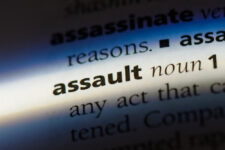What are the criminal fines for assault charges in NSW?

If you have pleaded guilty or been found guilty of an assault offence in New South Wales, there are a number of penalties you face, including: avoiding a criminal record altogether, a good behaviour bond or a fine.
It is important to be aware that prison is always the last resort, although the likelihood of being sent away increases with the severity of the assault charge you are facing.
One of the options available to the court is a fine.
The amount of any such fine will depend on a number of factors including the severity of the offence and your financial situation.
If I get fined, will I have to pay immediately?
You generally have 28 days to pay the fine.
If you are going through financial hardship, you may be able to have the payment period extended, depending on your individual circumstances.
Can I appeal the sentence?
If your case has been heard in the local court, and you do not agree with the decision, you can appeal to the district court.
You will need to lodge your application within 28 days, unless there are extenuating circumstances to prevent you from doing so. In that case, you will have up to 3 months.
The best thing about an appeal is that you cannot, in practical terms, get a harsher penalty. This is because the district court judge will need to warn you if he or she is thinking about imposing a more severe penalty, in which case you can seek leave to withdraw the appeal.
What are the different assault charges and fines?
Most assault charges come with a maximum fine.
The actual amount you are fined will normally be less than this, depending on the seriousness of the particular offence, your criminal history and your situation.
Here is a list of the most common assault charges, and the maximum criminal fines you will have to pay if the matter is dealt with in the local court:
- Common assault – $5,500
- Assault occasioning actual bodily harm (ABH) – $5,500
- Assault/resist police – $2,200
- Recklessly cause grievous bodily harm/reckless wounding – you should get a criminal lawyer to represent you as this charge is serious.
Is there any way to avoid getting the maximum penalty?
When the judge decides your penalty, they will take into consideration any mitigating factors, any previous offences, the offence itself and your particular financial situation including your income, expenses, any loans, credit card debts, any dependents you have and so on.
There are a number of things you can do to help ensure you receive the lowest possible penalty for your assault charge, including:
- Hiring a skilled and experienced criminal lawyer to defend your case
- Making it clear if there were mitigating circumstances at the time, such as feeling under great pressure, any provocation, intoxication, or anything else that might has contributed to you acting in the way you did
- Demonstrating that you have undertaken steps to address any underlying issues that might have contributed to the offence, such as undergoing counselling to deal with anger management issues or entering a drug or alcohol treatment program
- Showing that you are aware of the serious nature of the charges and demonstrating remorse where applicable
- Concisely communicating your difficult financial situation
Your lawyer can advise you on the most appropriate ways to reduce your penalty if you are guilty of a criminal offence.
In some cases, you may be able to have the charges withdrawn or dropped, and avoid a conviction or a fine altogether.
If you have been arrested or charged with assault, speak to an experienced criminal lawyer as early as possible to help ensure the best possible outcome for your case.






